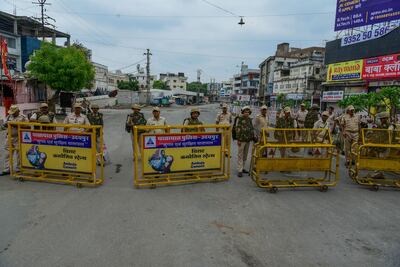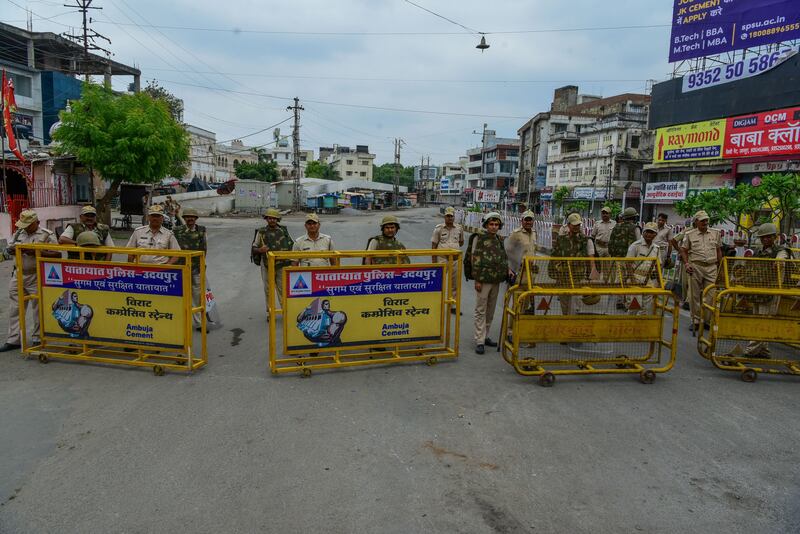India’s federal anti-terror agency has arrested more than 100 members of an alleged Islamist organisation, during a nationwide clampdown on the group over allegations of terror funding and radicalising people.
The National Investigation Agency on Thursday morning raided the offices and homes of senior members of the Popular Front of India (PFI) across 10 states. These included Kerala, Tamil Nadu, Karnataka, Andhra Pradesh and Telangana in the south.
The NIA called the operation the “largest ever to date” in the country, alleging the group promotes radicalisation, anti-government activities and fans communal troubles. Indian security forces have in the past arrested members of the PFI, who they say were in possession of weaponry and extremist propaganda materials. Kerala police said that in 2017, six members of the group were identified as having joined ISIS.

The highest number of arrests — 42 ― were made in Kerala. The NIA raided at least 10 locations across Bengaluru city in Karnataka, including the residence of the state PFI president Nazeer Pasha.
Supporters of the organisation staged a protest against the raids in Mangaluru city, also in Karnataka.
The PFI has a strong presence in southern states and calls itself a “neo-social movement to empower people from marginal communities and ensure justice”.
It called the raids a witch hunt against Muslim voices.
“We strongly protest the fascist regime's moves to use agencies to silence dissenting voices," the PFI said.
Indian Home Minister Amit Shah chaired a meeting with NIA officials and National Security Adviser Ajit Doval following the raids.
The PFI was launched in Kerala in 2007 after three Muslim organisations merged in the aftermath of the ban on the Students' Islamic Movement of India, a leading Muslim students' organisation, in 2001.
The main aims of the purportedly apolitical organisation are to fight for the rights of minorities, Dalits, and marginalised communities.
The group says that it is focused on social and religious activities like its Hindu right-wing counterparts such as the Rashtriya Swayamsevak Sangh — the ideological parent of the ruling Bharatiya Janata Party.
The BJP has historically clamped down on Muslim organisations, banning the Students' Islamic Movement of India as part of a campaign against Islamic extremism.
Authorities have described the PFI as a domestic threat and have accused it of being instrumental in organising mass street protests against the Citizen Amendment Act. This fast-tracked citizenship for minorities leaving Afghanistan, Pakistan and Bangladesh, but excluded Muslims from the asylum offer.
The group was also accused of provoking violence during the inter-communal Delhi riots in 2020. It was also alleged to have attempted to foment violence over the rape and murder of a low-caste Hindu woman in Hathras in northern Uttar Pradesh the same year.
But over the years, several state governments have accused the group of being involved in terror activities, sectarian violence and Islamic extremism.
It was banned by the eastern Jharkhand state in 2019 over “anti-national” activities.
The organisation came under renewed focus during the hijab controversy in Karnataka. This involved weeks of street protests earlier this year after Muslim female students were banned from wearing the Islamic scarf in educational institutions.
Police carried out simultaneous searches at 40 locations in Telangana state last week. They seized digital devices, documents, weapons, and 800,000 rupees ($10,000) in cash.






